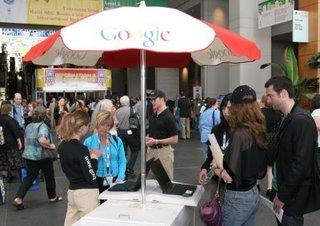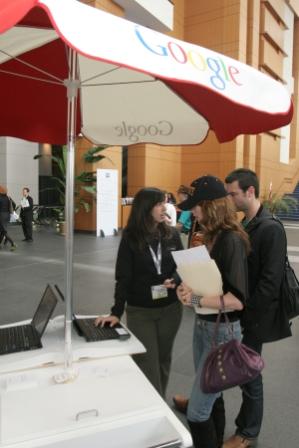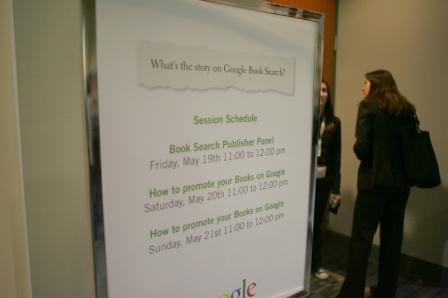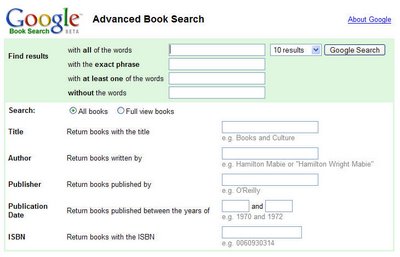Tuesday, May 30, 2006 at 4:40 PM
When we announced the launch of Google Book Search (then called Google Print), we were bowled over by how many people wrote to tell us how excited they were about Google working to make the world's books searchable online. One of the most memorable emails came from Laura Moody, a librarian at the Gulf Shores Public Library in Alabama. She wrote:
I admire a company that is so in line with the premise of library ideals. The dissemination of knowledge, especially the scanning in of the university collections and making them available to all in the WORLD, is truly noble. You are not just working at a job. You will enable, in a strange way, the remaining doors of ignorance to be blasted away. You will allow those people who are still isolated from the rest of the world to experience the light of knowledge. Remain true to your vision. Go home at the end of the day with a sigh of well-earned satisfaction. Some people talk about changing the world. You are actually doing it.
On top of making our day (week? month? year?), this email prompted us to think more deeply about how similar Google's mission is to a librarian's, and to explore ways we can work more closely with librarians in the quest to connect people and information.
Since then, we've launched the Google Librarian Center, a new resource center for librarians. While we're still in the early stages of the project and there's plenty more to come, we recently released our first teaching tool: a downloadable "cheat sheet" poster providing web search tips for librarians and their patrons. We also posted the archives of the Google Librarian Newsletter, which by our last count reaches nearly 30,000 librarians all around the world. So far in the newsletter, we've answered common questions librarians ask us about Google tools, including "How does Google rank search results?" and "How does Google Earth work?" Then we passed the baton to librarians, asking Karen Schneider of the Librarians' Internet Index (LII) how she makes sense of search results. And in the next issue, scheduled for release at the end of June, we'll focus for the first time on Google Book Search.
If you're a librarian, a book lover or just curious about how to get the most out of Google tools, we invite you to visit the website and sign up for the Google Librarian Newsletter. You can join the newsletter group and receive the next issue by entering your email address here. Read the full post 0 comments





